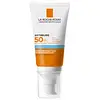What's inside
What's inside
 Key Ingredients
Key Ingredients

 Benefits
Benefits

 Concerns
Concerns

 Ingredients Side-by-side
Ingredients Side-by-side

Butyl Methoxydibenzoylmethane 3%
UV AbsorberHomosalate 10%
Skin ConditioningEthylhexyl Salicylate 5%
UV AbsorberOctocrylene 8%
UV AbsorberWater
Skin ConditioningBeeswax
Emulsion StabilisingAloe Barbadensis Leaf Juice
Skin ConditioningIsopropyl Palmitate
EmollientCetearyl Alcohol
EmollientCyclopentasiloxane
EmollientCyclohexasiloxane
EmollientCeteareth-20
CleansingHydroxyacetophenone
AntioxidantCarbomer
Emulsion StabilisingBenzyl Alcohol
PerfumingSaccharide Isomerate
HumectantPhenoxyethanol
PreservativeSodium Stearoyl Glutamate
CleansingTriethanolamine
BufferingTocopheryl Acetate
AntioxidantSodium Chloride
MaskingCitric Acid
BufferingButyl Methoxydibenzoylmethane 3%, Homosalate 10%, Ethylhexyl Salicylate 5%, Octocrylene 8%, Water, Beeswax, Aloe Barbadensis Leaf Juice, Isopropyl Palmitate, Cetearyl Alcohol, Cyclopentasiloxane, Cyclohexasiloxane, Ceteareth-20, Hydroxyacetophenone, Carbomer, Benzyl Alcohol, Saccharide Isomerate, Phenoxyethanol, Sodium Stearoyl Glutamate, Triethanolamine, Tocopheryl Acetate, Sodium Chloride, Citric Acid
Water
Skin ConditioningDiisopropyl Sebacate
EmollientGlycerin
HumectantBis-Ethylhexyloxyphenol Methoxyphenyl Triazine
Skin ConditioningAlcohol Denat.
AntimicrobialPropanediol
SolventEthylhexyl Salicylate
UV AbsorberEthylhexyl Triazone
UV AbsorberC12-22 Alkyl Acrylate/Hydroxyethylacrylate Copolymer
StabilisingDrometrizole Trisiloxane
UV AbsorberButyl Methoxydibenzoylmethane
UV AbsorberAluminum Starch Octenylsuccinate
AbsorbentSilica
AbrasiveTocopherol
AntioxidantIsopropyl Lauroyl Sarcosinate
Skin ConditioningAmmonium Acrylates Copolymer
Ammonium Acryloyldimethyltaurate/Vp Copolymer
Caprylyl Glycol
EmollientCitric Acid
BufferingDisodium EDTA
Scutellaria Baicalensis Extract
AntimicrobialT-Butyl Alcohol
PerfumingTerephthalylidene Dicamphor Sulfonic Acid
UV AbsorberTriethanolamine
BufferingXanthan Gum
EmulsifyingWater, Diisopropyl Sebacate, Glycerin, Bis-Ethylhexyloxyphenol Methoxyphenyl Triazine, Alcohol Denat., Propanediol, Ethylhexyl Salicylate, Ethylhexyl Triazone, C12-22 Alkyl Acrylate/Hydroxyethylacrylate Copolymer, Drometrizole Trisiloxane, Butyl Methoxydibenzoylmethane, Aluminum Starch Octenylsuccinate, Silica, Tocopherol, Isopropyl Lauroyl Sarcosinate, Ammonium Acrylates Copolymer, Ammonium Acryloyldimethyltaurate/Vp Copolymer, Caprylyl Glycol, Citric Acid, Disodium EDTA, Scutellaria Baicalensis Extract, T-Butyl Alcohol, Terephthalylidene Dicamphor Sulfonic Acid, Triethanolamine, Xanthan Gum
 Reviews
Reviews

Ingredients Explained
These ingredients are found in both products.
Ingredients higher up in an ingredient list are typically present in a larger amount.
Also known as Avobenzone, this ingredient is a chemical sunscreen filter that provides protection in the UV-A range.
Avobenzone is globally approved and is the most commonly used UV-A filter in the world.
Studies have found that avobenzone becomes ineffective when exposed to UV light (it is not photostable; meaning that it breaks down in sunlight). Because of this, formulations that include avobenzone will usually contain stabilizers such as octocrylene.
However, some modern formulations (looking at you, EU!) are able to stabilize avobenzone by coating the molecules.
Avobenzone does not protect against the UV-B range, so it's important to check that the sunscreen you're using contains other UV filters that do!
The highest concentration of avobenzone permitted is 3% in the US, and 5% in the EU.
Learn more about Butyl MethoxydibenzoylmethaneCitric Acid is an alpha hydroxy acid (AHA) naturally found in citrus fruits like oranges, lemons, and limes.
Like other AHAs, citric acid can exfoliate skin by breaking down the bonds that hold dead skin cells together. This helps reveal smoother and brighter skin underneath.
However, this exfoliating effect only happens at high concentrations (20%) which can be hard to find in cosmetic products.
Due to this, citric acid is usually included in small amounts as a pH adjuster. This helps keep products slightly more acidic and compatible with skin's natural pH.
In skincare formulas, citric acid can:
While it can provide some skin benefits, research shows lactic acid and glycolic acid are generally more effective and less irritating exfoliants.
Most citric acid used in skincare today is made by fermenting sugars (usually from molasses). This synthetic version is identical to the natural citrus form but easier to stabilize and use in formulations.
Read more about some other popular AHA's here:
Learn more about Citric AcidEthylhexyl Salicylate is an organic compound used to block UV rays. It primarily absorbs UVB rays but offers a small amount of UVA protection as well.
Commonly found in sunscreens, Ethylhexyl Salicylate is created from salicylic acid and 2-ethylhexanol. You might know salicylic acid as the effective acne fighter ingredient and BHA.
The ethylhexanol in this ingredient is a fatty alcohol and helps hydrate your skin, similar to oils. It is an emollient, which means it traps moisture into the skin.
According to manufacturers, Ethylhexyl Salicylate absorbs UV wavelength of 295-315 nm, with a peak absorption at 307-310 nm. UVA rays are linked to long term skin damage, such as hyperpigmentation. UVB rays emit more energy and are capable of damaging our DNA. UVB rays cause sunburn.
Learn more about Ethylhexyl SalicylateTriethanolamine is an emulsifier and pH adjuster. It is created using ethylene oxide and ammonia. This gives Triethanolamine a nitrogen core and a similar scent to ammonia.
As an emulsifier, it prevents ingredients from separating and enhances texture by adding volume to a product.
PH adjusters are common in cosmetic products. The pH of a product can affect the effectiveness of other ingredients. A product with a high pH may also irritate the skin.
Learn more about TriethanolamineWater. It's the most common cosmetic ingredient of all. You'll usually see it at the top of ingredient lists, meaning that it makes up the largest part of the product.
So why is it so popular? Water most often acts as a solvent - this means that it helps dissolve other ingredients into the formulation.
You'll also recognize water as that liquid we all need to stay alive. If you see this, drink a glass of water. Stay hydrated!
Learn more about Water